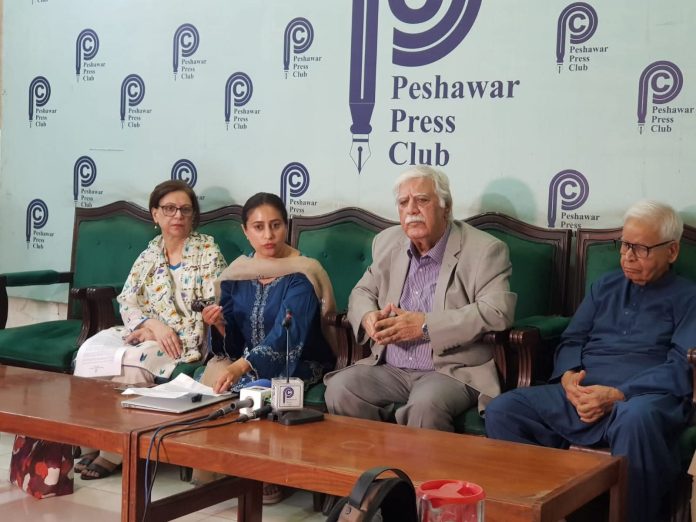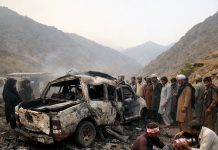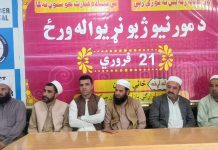By Ashrafuddin Pirzada
PESHAWAR: A fact-finding mission to Khyber Pakhtunkhwa led by the Human Rights Commission of Pakistan (HRCP), alarmed by the rapidly diminishing writ of the state and the government’s seeming inability to protect citizens’ right to life, press freedom and liberty, particularly in the merged districts.
Comprising HRCP chairperson Asad Iqbal Butt, co-chair Munizae Jahangir, treasurer and veteran journalist Husain Naqi, vice-chair Akbar Khan, academic and HRCP member Dr Saba Gul Khattak and HRCP staff members Shahid Mehmood and Salman Farrukh, the mission held meetings from 24 to 26 September 2025 with a wide range of civil society including the journalists, the legal community, human rights defenders and families displaced by conflict as well as with political party leaders, law enforcement officials and senior members of the Khyber Pakhtunkhwa government, including the chief minister. Those present included Peshawar Press Club President M. Riaz, Khyber Union of Journalists (KhUJ) President Kashif ud Din Syed, senior journalists Shamim Shahid, Farzana Ali, Saif ul Islam Saifi, Nisar Muhammad Khan, Nasir Hussain, Bakhtzada, tribal journalists Ibrahim Shinwari, Khyal Mat Shah Afridi, Khadim Khan Afridi, Shah Nawaz Khan, Nabi Jan Orakzai, Rehan Muhammad, Aftab Khan, and others.
Principally, local communities and stakeholders have highlighted a worrying link between increasing violence, terrorism, displacement, security operations and the extraction of natural resources under the proposed Khyber Pakhtunkhwa Mines and Minerals Act 2025. In many parts of the merged districts, including Khyber, Waziristan, where terrorists appear to be operating unhindered, reportedly extorting and harassing, kidnapping residents, killing those who refuse to comply, and restricting people’s movement beyond the afternoons. Some reports suggest that law enforcement agencies have ceased to operate in these areas.
Representatives from the merged tribal districts recalled the target killings of media personnel in different areas since 2005.
The mission was especially concerned about the recent killings in Tirah, in which, reportedly, over 20 civilians, including women and children, were killed, allegedly under aerial bombardment. The mission also documented intimidation and threats being faced by journalists across Khyber Pakhtunkhwa. The mission has demanded a credible inquiry, urging the provincial and federal authorities to cease shifting blame onto one another. Inadequate compensation to victims’ families cannot be a substitute for state accountability and due process.
The mission notes with concern that the Khyber Pakhtunkhwa Actions (in Aid of Civil Power) Ordinance 2019, an impugned law still in force, continues to legitimize internment centres and preventive detention in clear violation of Article 10 of the Constitution and Pakistan’s international legal commitments. Moreover, decreased judicial and administrative oversight, alongside weak regulatory mechanisms, continue to perpetuate the practice of enforced disappearances, with allegations of thousands of cases reported, despite far lower official figures.
The mission has further documented the harassment of journalists by state and non-state actors, lawyers and human rights defenders, particularly those advocating against enforced disappearances. The allegation that law enforcement and security agencies have been complicit in forcibly disappearing people who were then traced to internment centres is of grave concern and merits an immediate response from the government.
The mission has also documented serious reservations expressed by the legal community regarding the revival of alternative dispute resolution mechanisms, which risk creating a parallel justice system that lacks credibility and undermines the rule of law.
The mission concludes that there appears to be a clear effort to undo the hard-won constitutional merger of 2018, which could not only reverse social and economic progress but would also prove disastrous for the rights of vulnerable groups, particularly women and transgender persons, living in these areas.











